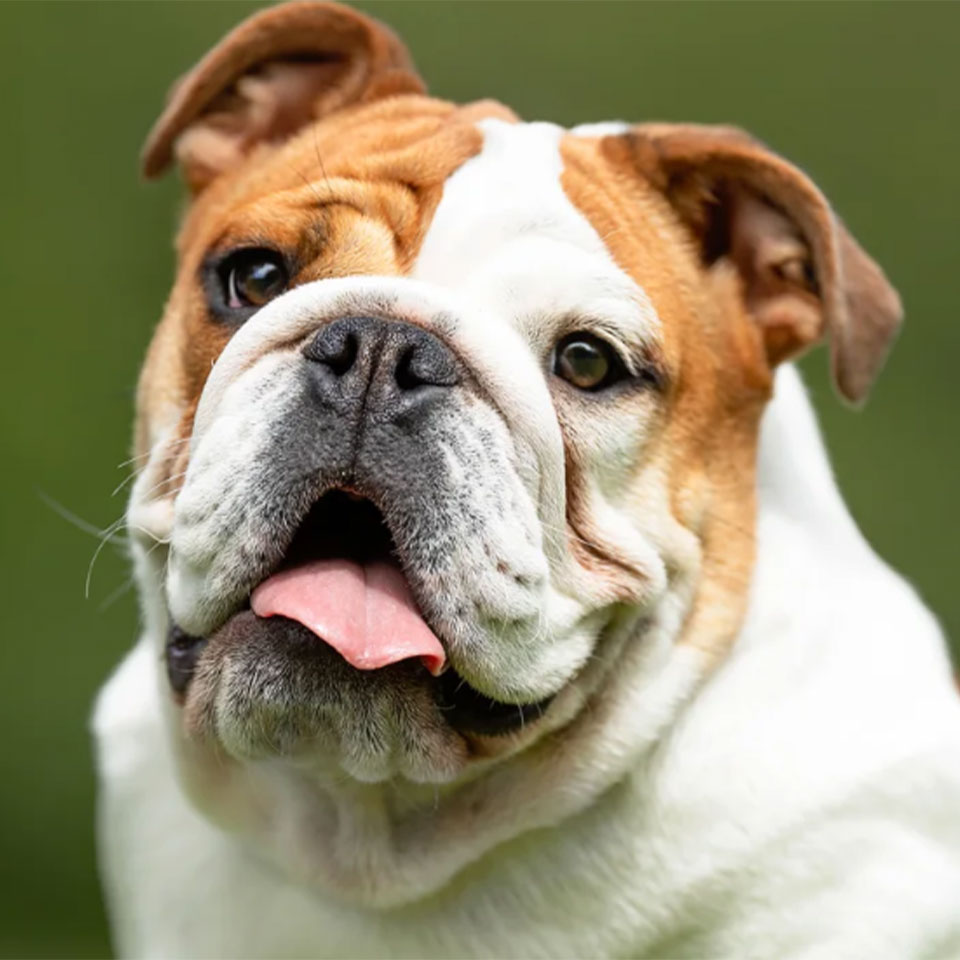Time to help Flat Faced Dogs Breathe Better!
Brachycephalic Obstructive Airway Syndrome(BOAS) is an animal welfare condition affecting flat faced dogs which leads to severe respiratory distress & life threatening complications.
Abnormalities that contribute to this disease include an elongated soft palate, stenotic nares, a hypoplastic trachea, aberrant turbinates, and everted laryngeal saccules (a condition which occurs secondary to the other abnormalities). Greater pressures are required during breathing, particularly during inspiration. Over time the increased negative airway pressure results in secondary changes & complications that make it difficult to breathe during exercise, stress, & heat.
Affected dogs may be unable to take deep or fast enough breaths to release carbon dioxide. This leads to distress & further increases respiratory rate & heart rate, creating a vicious cycle that can quickly lead to life-threatening situations such as pneumonia, bronchitis, hyperthermia, and collapse.
Minimally invasive corrective laser airway surgery involves widening the entrance to each nostril, removing excessive tissue within each nostril, and removing the excessive tissue of an elongated soft palate. This combination of procedures is performed without the need for sutures and drastically improves airflow and oxygenation.
Benefits of laser surgery include minimal bleeding, short anesthesia time, reduced pain, swelling, and tissue trauma. Early treatment has been proven to prevent secondary conditions from developing, improve breathing, and improve overall quality of life.
Time to help Flat Faced Dogs Breathe Better!
Brachycephalic Obstructive Airway Syndrome(BOAS) is an animal welfare condition affecting flat faced dogs which leads to severe respiratory distress & life threatening complications.
Abnormalities that contribute to this disease include an elongated soft palate, stenotic nares, a hypoplastic trachea, aberrant turbinates, and everted laryngeal saccules (a condition which occurs secondary to the other abnormalities). Greater pressures are required during breathing, particularly during inspiration. Over time the increased negative airway pressure results in secondary changes & complications that make it difficult to breathe during exercise, stress, & heat.
Affected dogs may be unable to take deep or fast enough breaths to release carbon dioxide. This leads to distress & further increases respiratory rate & heart rate, creating a vicious cycle that can quickly lead to life-threatening situations such as pneumonia, bronchitis, hyperthermia, and collapse.
Minimally invasive corrective laser airway surgery involves widening the entrance to each nostril, removing excessive tissue within each nostril, and removing the excessive tissue of an elongated soft palate. This combination of procedures is performed without the need for sutures and drastically improves airflow and oxygenation.
Benefits of laser surgery include minimal bleeding, short anesthesia time, reduced pain, swelling, and tissue trauma. Early treatment has been proven to prevent secondary conditions from developing, improve breathing, and improve overall quality of life.
Free BOAS Consult with Dr. Boaz Man
BOAS Laser Surgery Common Questions



Duke Before & After BOAS Laser Surgery
Breathing is life, if you can’t breathe you can’t live. [...]
Bowser’s Elongated Soft Palate & Laser Surgery Solution
There’s too much stuff in too small of a space [...]
Dr Boaz Man 2026 Laser Surgery Award
Imagine being born with airways too narrow to breathe. Helping [...]


